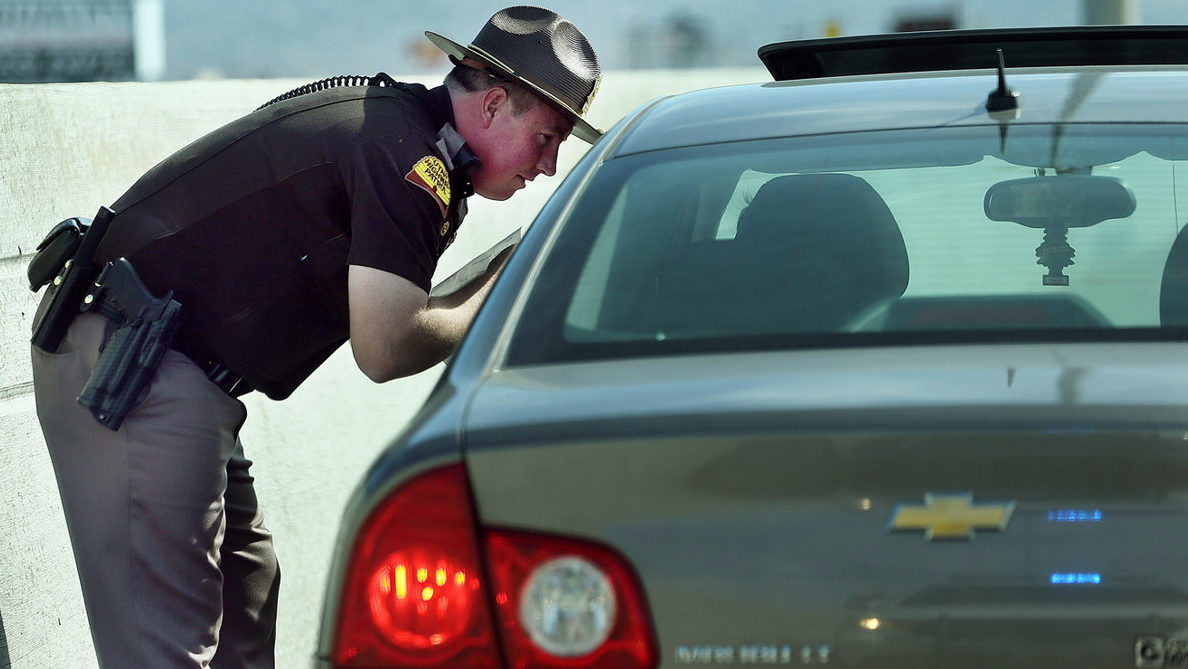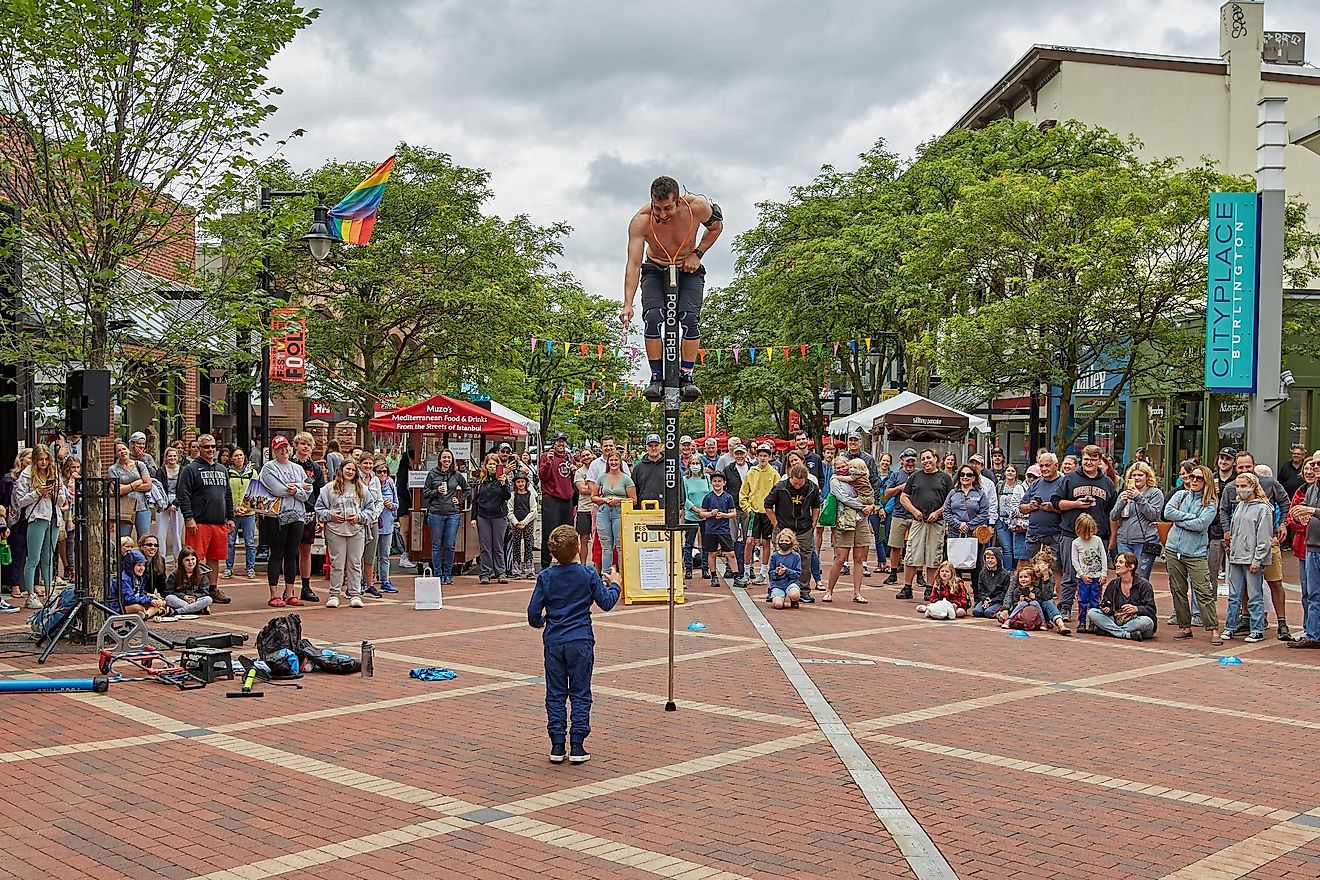North Carolina
Judge strikes down North Carolina law on prosecuting ex-felons who voted before 2024

RALEIGH, N.C. — A federal judge has halted the enforcement of a North Carolina law that made it a serious crime for someone to vote while still on probation or parole for a felony conviction when they had simply violated the voting law by mistake.
The ruling was celebrated by groups representing poor residents and Black union members – and is limited, addressing some allegations of illegal voting conducted before 2024.
That’s because the General Assembly amended the law last fall so that starting Jan. 1 a felony offender has to know they were breaking the law by voting for there for it to be considered a crime. But the old law had not been repealed.
The plaintiffs in a 2020 lawsuit said that people would still be subject to prosecution for votes allegedly cast before 2024 under the old rules, which didn’t require intentionality to violate them. They said local district attorneys could otherwise still prosecute scores of pending cases.
In her ruling filed late Monday, U.S. District Judge Loretta Biggs said that the pre-2024 law was unconstitutionally vague. She cited evidence in the case of DAs questioning whether intent was necessary as proof that the law lacked standards to prevent its arbitrary enforcement.
And Biggs wrote the pre-2024 law was tainted by racial bias, with its origins going back to the Jim Crow era.
“The Challenged Statute was enacted with discriminatory intent, has not been cleansed of its discriminatory taint, and continues to disproportionately impact Black voters,” Biggs said in granting the motion sought by lawyers for Action NC and the A. Philip Randolph Institute.
There is uncontested evidence of the law originating in an 1877 law that placed harsh penalties on disenfranchised felons, particularly Black residents, Biggs wrote. In recent years, an outsized percentage of Black voters were investigated compared to the percentage of the state’s Black population under the pre-2024 law, she continued.
Government lawyers for the State Board of Elections and for district attorneys who were sued had argued that passage of a new North Carolina Constitution in the early 1970s created “a break from the history” of the law’s otherwise discriminatory past. But Biggs disagreed and pointed out the challenged law was virtually unchanged for decades, from 1931 to 2023.
Biggs’ summary judgment order could be appealed. The state Department of Justice, whose attorneys helped defend the elections board and the DAs, was reviewing the decision Tuesday, a spokesperson said.
The state constitution says a person convicted of a felony can’t vote until their rights of citizenship are restored “in the manner prescribed by law.”
North Carolina law and a recent court ruling state that a convicted felon can’t vote again until they complete their punishments, which include incarceration, probation and other close supervision. Their rights are then automatically restored, but a person must reregister to vote.
The plaintiffs, which are also voter education groups, said that allowing the pre-2024 law to remain in place also would have forced them to use resources to educate ex-felons who were eligible to vote but remained fearful about registering again, in case DAs keep prosecuting people from previous elections.
Biggs’ decision “will help ensure that voters who mistakenly think they are eligible to cast a ballot will not be criminalized for simply trying to re-engage in the political process and perform their civic duty,” Mitchell Brown, an attorney from the Southern Coalition for Social Justice who helped represent the plaintiffs, said in a news release.
Biggs issued the ruling, even as a U.S. magistrate judge had recommended in January that the lawsuit be dismissed, citing the Jan. 1 alteration as substantially diminishing the threat of prosecution faced by prospective voters.
The lawsuit was initially filed in September 2020 but legal hurdles delayed the matter.
Copyright © 2024 by The Associated Press. All Rights Reserved.

North Carolina
North Carolina HBCU faces battle with IRS, risks being shut down

Saint Augustine’s University in Raleigh, North Carolina, is in an ongoing battle with the IRS and the Southern Association of Colleges and Schools Board of Trustees after the historically Black school’s previous finance department “mismanaged” a $34 million budget, according to university officials.
Historically Black Colleges and Universities (HBCUs), both public and private, have been underfunded due to lower endowments, less alumni support and state and federal underinvestment.
Recently, HBCUs have faced several challenges. During a funding crisis, Tennessee State University had its board stripped away in a complete overhaul by state lawmakers. In Mississippi, lawmakers proposed a bill that would have shut down the state’s only public HBCUs.
Now teachers and staff at Saint Augustine’s have not received a salary for three months following the institution’s plunge into debt of $32 million. The dire financial situation places the university at a high risk of losing its accreditation, a crucial aspect of its credibility and reputation.
“We’re still unpacking, but the biggest piece starts with our missing audits from 2021, 2022 and 2023,” Saint Augustine’s Interim President Marcus H. Burgess told ABC News in an interview in March. “A $34 million budget. There was only $130,000 that can be accounted for. So a new finance team was brought in, and they “literally had to recreate all of those financials. And it took them about two years to do that.”
Saint Augustine’s University accreditation appeal was denied.
ABC News
Christine Johnson McPhail, the previous president of Saint Augustine’s University (SAU), was terminated on Dec. 3, 2023, when the Southern Association of Colleges and Schools Board of Trustees voted unanimously to remove Saint Augustine’s status as an accredited institution. On Feb. 20, the school had an appeal hearing with the Board of Trustees. The committee that heard that appeal rendered the decision to fire McPhail.
ABC News contacted McPhail’s attorney, who declined to speak on the financial issues at SAU.

Dr. Christine Johnson McPhail is the 13th President of Saint Augustine’s University in Raleigh, N.C., March 18, 2022.
Mauricio Richardson
“We are not at liberty to discuss the financial situation at Saint Augustine’s University. It is our position that Saint Augustine’s termination of Dr. McPhail’s employment was unrelated to the school’s financial situation.”
According to the Southern Association of Colleges and Schools Commission on Colleges (SACS), the university’s accreditation is currently on hold due to financial and governance issues. The institution has been put on probation and, in response, the university sent a letter of arbitration to SACS on Mar. 11. The school will retain its accreditation until the arbitration process is complete, according to a statement on its website.
“It gave us 90 days. So, within that 90 days, we still accredit it,” Burgess said. “It allows our seniors to graduate from an accredited institution.”
If SAU loses its accreditation, 85 percent of its students will lose their financial aid.
“Transferring is just not something I would have ever thought,” SAU student Tinaya Eason said. “And I’m still thinking about it. Nothing is really finalized right now.”
SAU needs to raise nearly $32 million to pay its debts and remain operational.
The university received a tax lien of nearly $7.8 million from the IRS for unpaid payroll taxes dating back to 2020, putting the university’s financial stability at risk.
Due to the school debt, Burgess and his staff have been working without compensation since February.
“Staff have not been paid, but they still fight for this institution,” Burgess said. “They still teach our students. They want to see this class get to the graduation day, but they are hurting.”
Despite an outpouring of support from alumni and community donations, the amount raised is hardly enough to solve the problem.
“We need capital, and need cash,” Burgess said. “I don’t want to have to sell any of our land. In the Black community and African American community, we know how hard it’s been to get this land.”
“I’m forever reminded of my senior year; $1,200 is what I needed to graduate,” Burgess said. “One of our board members, Barrett Jackson, was on campus and handed me an envelope, and it was several checks from his Sunday school class. And he told them about this young man at Claflin University who just needed a chance. I’m a living testimony to why you should always look to help somebody. We need that chance.”
North Carolina
North Carolina student indicted for kidnapping, assault of teacher in viral incident, charged in 2nd attack
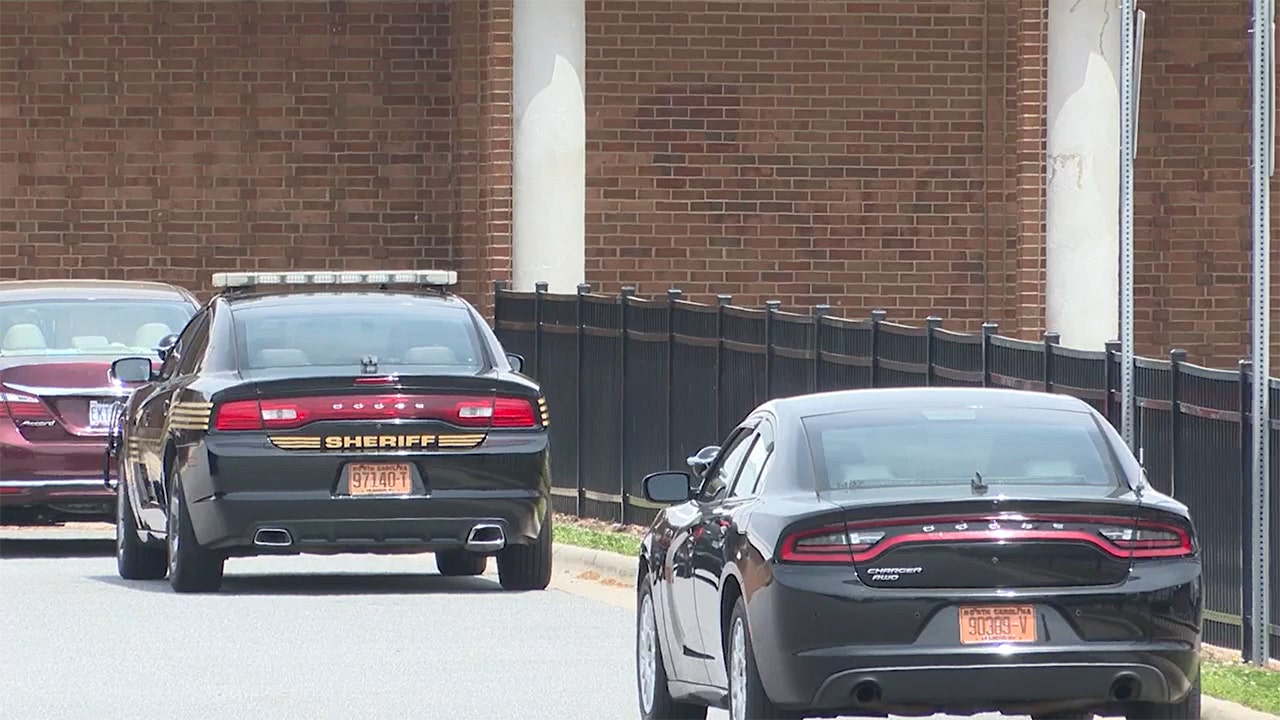
Two weeks after a North Carolina high school student allegedly slapped and threatened a teacher in an incident that was captured on video that went viral, the student has been indicted for kidnapping and assault on a government official, the Forsyth County DA announced Thursday.
Aquavis Hickman, 17, has also been indicted for the alleged assault of another teacher at the same school — Parkland High School in Winston-Salem, North Carolina — in February.
“A grand jury was convened last week, last Monday, comprised of members of this community and the grand jury returned two bills of indictment against the defendant now in this case, Aquavis Hickman,” Forsyth County District Attorney Jim O’Neill said at a press conference.
He said Hickman, who will be charged as an adult, faces second-degree kidnapping charges in the April 15 incident with a female teacher “by unlawfully confining and restraining her without her consent for the purpose of terrorizing her. That defendant was also indicted on that same bill for assault on a government official, that being a teacher, and finally communicating threats against that teacher.”
STUDENT ACCUSED OF VICIOUSLY BEATING AIDE IN VIRAL VIDEO BLAMES SCHOOL IN NEW LAWSUIT: ‘TICKING TIME BOMB’
Police outside the school where a teacher was attacked by a student on April 15 in North Carolina. (WGHP)
He said Hickman told the teacher he was going to kill her, and the “threat was made in a manner and under circumstances which would cause a reasonable person to believe that threat was likely to be carried out, and the person threatened believed it would, in fact, be carried out.”
The viral video shared on social media appeared to show Hickman violently slap his teacher twice amid a profanity-laden rant against her.
“Do you think that affected me in any way?” the teacher can be heard asking. “Want me to hit you again?” Hickman says, while stepping up and repeating the question. “I don’t want it,” the teacher says, before she is struck again. The hit is so hard that her glasses fly off her face while the teenager continues his profanity-filled rant.
“Ain’t nobody even coming. You got slapped,” Hickman says. “B—-, go back to teaching.”
He was also indicted on the same charges for the alleged assault on the second teacher in February and was indicted on a misdemeanor count of riot based on allegations Hickman gathered with at least two others and “engaged in a public disturbance, kidnapping the second teacher in this case, attempting to fight him. This disorderly and violent conduct created a clear and present danger of injury to the victim in this case.”
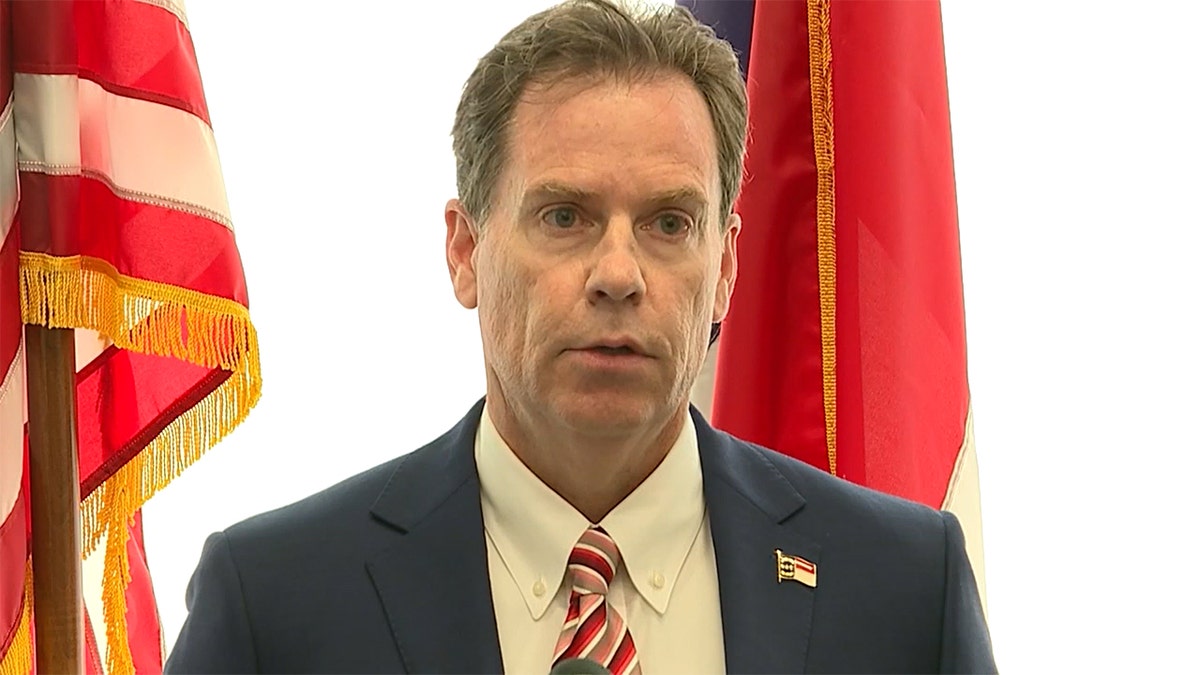
Forsyth County District Attorney Jim O’Neill announced this week that Aquavis Hickman has been indicted by a grand jury for kidnapping and assault on two teachers (WGHP)
“Sheriff Kimbrough, Chief Penn and myself made a promise to this community that we would not tolerate any assaults on our teachers, plain and simple,” O’Neill said. “Nobody should go to work and expect to be assaulted.”
He added, “We stand with the teachers, we will fight to protect those teachers and if you lay a hand on a teacher and assault a teacher you can expect that the punishment will be swift and severe. Promise made and promise kept.”
Kimbrough, at the press conference, said “everyone sitting in this room owes a debt to the woman or man who educated you: teachers. All of us are who we are because of the men and women that educated us.”
UCLA STUDENT DISMAYED TO SEE PEERS ‘CELEBRATING’ HAMAS ATROCITIES
He added, “How can we in good conscience allow anyone to assault a teacher?” adding, there are “some things in society that have to be sacred,” and “we have to protect the people that educate us.”
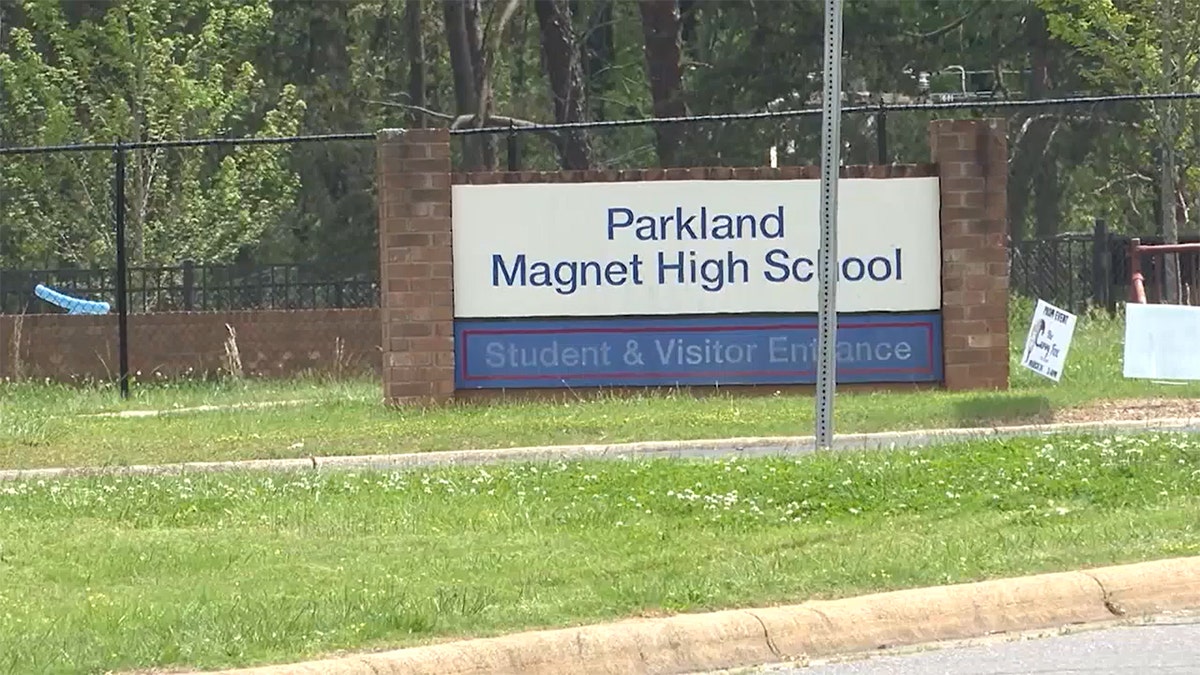
The assault caught on video took place at Parkland High School in Winston-Salem, North Carolina, last month. (WGHP)
Kimbrough said every day in the community he sees teachers breaking up fights, getting injured and deputies even forced to mace students.
He said that incidents with students have steadily increased since 2020.
Winston-Salem Police Chief William Penn, Jr. added, “Our schools aren’t a battleground nor a boxing ring … Our schools must be safer.”
CLICK HERE TO GET THE FOX NEWS APP
He said the video that went viral “put us on the map in a negative manner. I’m also glad today that the rest of the nation will hear that we do not tolerate that in Winston-Salem and in Forsyth County.”
North Carolina
Nine new stops added to Moonshine and Motorsports Trail in North Carolina, Iredell Free News
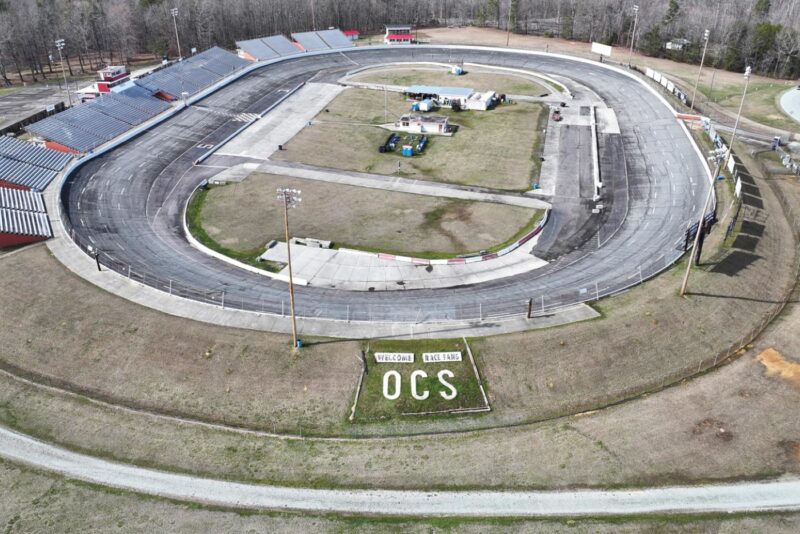
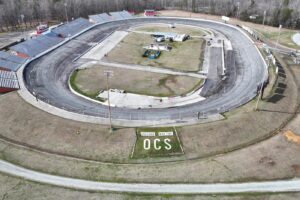
Special to Iredell Free News
RALEIGH — Following a triumphant first year, the Moonshine and Motorsports Trail in North Carolina is expanding.
The Moonshine and Motorsports Trail, conceived in the 2021 state budget and launched in 2023 by the N.C. Department of Natural and Cultural Resources (DNCR), is adding nine new sites that will highlight the state’s unique, intertwined history of distilling and stock car racing.
“The Moonshine and Motorsports Trail’s goals are to increase economic development across the state, to honor North Carolina’s leadership and innovation in these fields, and to help rural communities thrive,” said DNCR Secretary Reid Wilson. “Locations on the trail span the entire state and include diverse and authentic stories about racing, distilling, prohibition, rural life, agriculture, and recreation.”
The newly added sites enrich the trail’s narrative by delving deeper into the diverse aspects of North Carolina’s moonshine and motorsports legacy.
• Bowman Gray Stadium, Winston-Salem: Built in 1937 as a public works project, this 1/4-mile oval has been referred to as “NASCAR’s Longest-Running Weekly Race Track,” a testament to the sport’s enduring legacy.
• Dale Earnhardt Tribute Plaza, Kannapolis: This plaza in downtown Kannapolis commemorates the NASCAR legend’s life and career with a striking 9-foot, 900-pound bronze statue of Earnhardt, a seven-time NASCAR champion.
• Dismal Swamp State Park, South Mill: Once a sanctuary for moonshiners, the Great Dismal Swamp near Elizabeth City, hid large-scale illicit distilling operations during Prohibition that were nestled in the natural beauty of the region.
• Johnston County Heritage Center and Johnston County Museum, Smithfield: Uncover the saga of Percy Flowers, dubbed the “King of the Moonshiners,” in a 1958 Saturday Evening Post profile and explore his influence in the region, intersecting with the area’s agricultural history.
• Mountain Gateway and Heritage Center, Old Fort: Housing a moonshine still, the museum spotlights Southern Appalachian heritage, culture and the history of western North Carolina.
• Museum of Ashe County History, Jefferson: Featuring the “Moonshine and Music,” exhibit, this museum showcases the fusion of Appalachian music culture with the region’s moonshine history.
• NC Transportation Museum, Spencer: Featuring the “Bumper To Bumper” exhibit, this museum displays vintage and antique cars alongside a Highway Patrol car from 1935 and other automotive treasures.
• North Carolina Zoo, Asheboro: Home to Purgatory Trail at Purgatory Mountain, a well-known hideout for bootleggers in Randolph County and about 20 miles from Level Cross, the base of the Petty Family racing dynasty.
• Orange County Speedway, Rougemont: Known as “the fastest 3/8-mile race track in America,” the high-banked oval has hosted some of the most famous names in stock car racing, including Dale Earnhardt, Jeff Gordon and many more.
These additional sites enhance the trail’s offerings and provide visitors with a diverse array of experiences that celebrate North Carolina’s unique history. The Moonshine and Motorsports Trail invites visitors to embark on a journey through time, exploring the stories, traditions, and legacies that have shaped the state’s cultural landscape.
LEARN MORE
For more information and updates on the Moonshine and Motorsports Trail, please visit ncmmtrail.com.
About the North Carolina Department of Natural and Cultural Resources
The N.C. Department of Natural and Cultural Resources (DNCR) manages, promotes, and enhances the things that people love about North Carolina – its diverse arts and culture, rich history, and spectacular natural areas. Through its programs, the department enhances education, stimulates economic development, improves public health, expands accessibility, and strengthens community resiliency.
-

 News1 week ago
News1 week agoLarry Webb’s deathbed confession solves 2000 cold case murder of Susan and Natasha Carter, 10, whose remains were found hours after he died
-

 News1 week ago
News1 week agoFirst cargo ship passes through new channel since Baltimore bridge collapse
-

 World1 week ago
World1 week agoHaiti Prime Minister Ariel Henry resigns, transitional council takes power
-

 World1 week ago
World1 week agoSpanish PM Pedro Sanchez suspends public duties to 'reflect'
-

 World1 week ago
World1 week agoUS secretly sent long-range ATACMS weapons to Ukraine
-

 News1 week ago
News1 week agoAmerican Airlines passenger alleges discrimination over use of first-class restroom
-

 Movie Reviews1 week ago
Movie Reviews1 week agoHumane (2024) – Movie Review
-

 Education1 week ago
Education1 week agoVideo: Johnson Condemns Pro-Palestinian Protests at Columbia University
